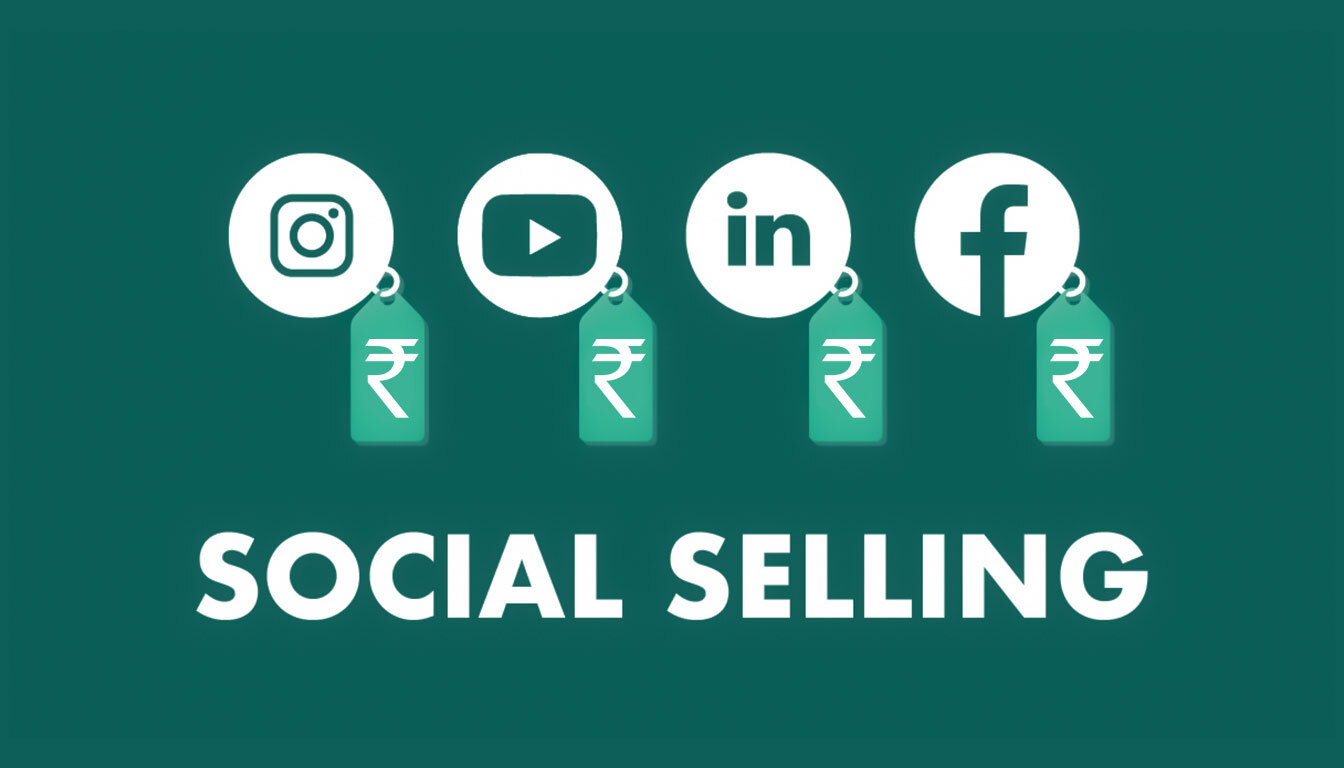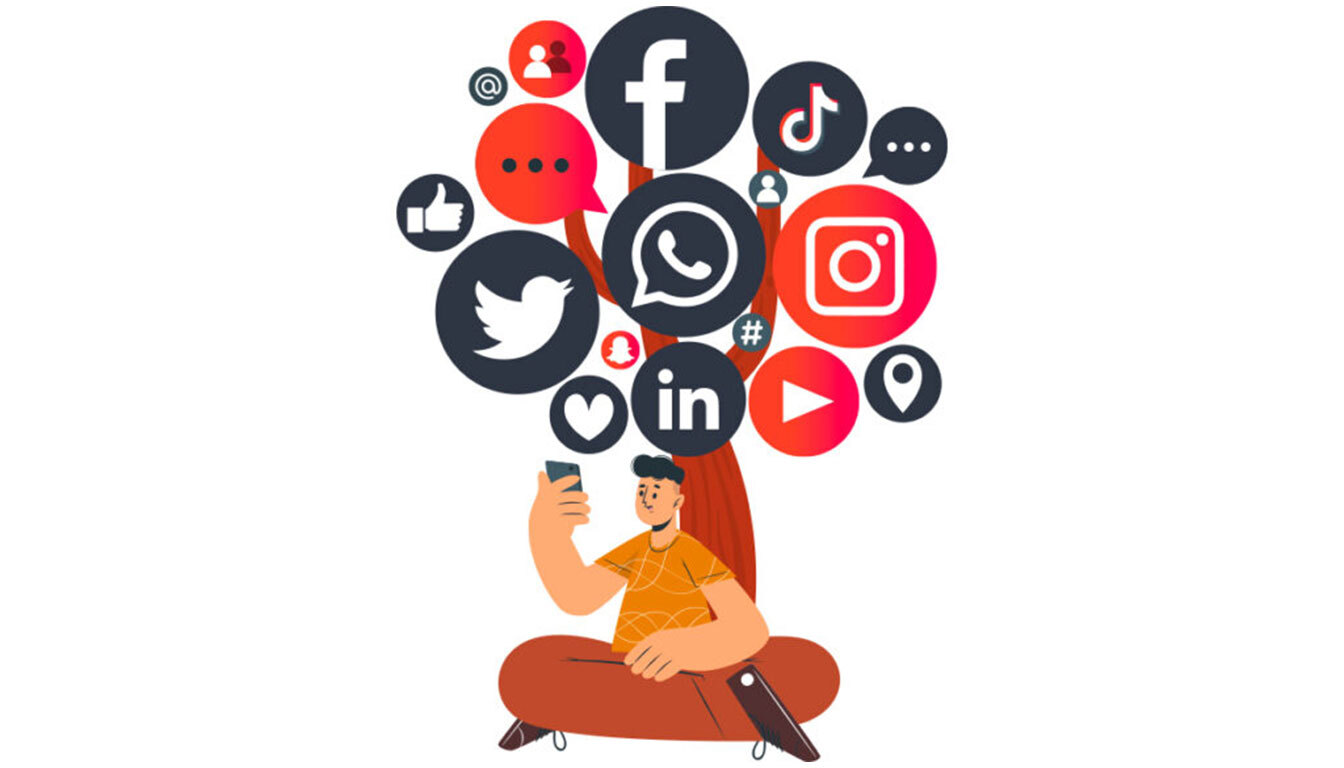
Why Social Selling Is the Future of Sales: Insights and Tips
Introduction to Social Selling
The sales landscape is undergoing a dramatic shift. Cold calling and impersonal emails are becoming relics of the past. Today's buyers are digitally savvy and conduct thorough research before engaging with a salesperson. This necessitates a more strategic and customer-centric approach to sales - enter social selling.
Social selling is a powerful digital sales technique that allows you to showcase your expertise, establish yourself as a thought leader, and nurture leads through the sales funnel in a more natural and engaging way.
Social selling is one of the most transformative trends in the sales industry, providing businesses with new opportunities to engage prospects, build relationships, and drive revenue growth. But why social selling is important in 2024 and beyond? The answer lies in how effectively it integrates social media with digital sales techniques to generate leads, nurture relationships, and enhance sales outcomes.
This blog will explore social selling strategies, the benefits of social selling, and how businesses can take advantage of social media platforms to optimize their sales efforts. We will also delve into insights on social selling and tips to master it for both B2B and B2C sales.
The Shift Towards Social Selling
The future of sales has shifted from traditional methods like cold calling and email outreach to a more dynamic approach focused on relationship-building and social media engagement. Social media for sales is no longer a nice-to-have, but a must-have for modern sales teams looking to stay competitive.
Social selling vs traditional selling: Traditional selling often focuses on a hard sell, that is, pitching products or services to a wide audience with little to no prior engagement. Social selling, on the other hand, involves connecting with potential leads, listening to their needs, providing valuable content, and fostering trust through ongoing interaction. It’s a customer-first strategy that shifts the focus from making a sale to building long-term relationships.
You can go through our comprehensive blog, Top 10 Tips for Successful Social Selling and enhance your social media sales strategy.
Why Social Selling is the Future of Sales?
The future of sales is all about building trust and relationships. Social media provides the perfect platform to connect with prospects on a personal level, understand their needs, and position yourself as a trusted advisor.
Here are a few compelling reasons why social selling is taking center stage:
- Buyers are already on social media: 80% of B2B buyers actively use social media to research purchasing decisions. By engaging with them on the platforms they frequent, you can position yourself at the forefront of their buying journey.
- Content is king: Social media allows you to share valuable content like industry insights, thought leadership pieces, and case studies. This establishes you as a credible expert and builds trust with potential customers.
- Targeted outreach: Social media platforms provide sophisticated targeting options that allow you to reach highly specific audiences based on demographics, interests, and job titles.
- Two-way communication: Social media facilitates real-time conversations with potential customers. You can answer their questions, address concerns, and provide personalized guidance, fostering stronger connections.
- Measurable results: Social media platforms offer built-in analytics tools that allow you to track the performance of your social selling efforts. You can measure key metrics like CTR (Click-Through Rate), engagement, and lead generation, helping you refine your strategy for optimal results.
Apart from the above reasons, you can also read our blog, Mastering Social Selling: A 7-Step Strategy to Boost Your Sales and learn different strategies that will help you boost your sales!
Benefits of Social Selling
- Lead Generation with Social Media: One of the most significant benefits of social selling is its ability to generate high-quality leads. Platforms like LinkedIn allow sales teams to target specific industries, job titles, or companies, helping them find leads that are more likely to convert.
- Higher Engagement and Trust: Social media allows for real-time engagement, which helps foster trust and build relationships. Prospects are more likely to respond to a sales pitch if they have seen you engage meaningfully on their posts or comments.
- Enhanced Brand Awareness: Social selling allows you to showcase your brand and its values to a wider audience, boosting brand awareness and generating positive word-of-mouth.
- Improved Customer Relationships: Social media fosters a more human and interactive approach to selling, leading to stronger customer relationships built on trust and mutual understanding.
- Improved Conversion Rates: Social selling strategies help you nurture leads through the sales funnel more effectively. By engaging with prospects over time and addressing their pain points, you increase the chances of conversion.
- Shorter Sales Cycle: By building relationships and establishing trust early on, you can shorten the sales cycle and convert leads into paying customers faster.
- Higher ROI: Social selling offers a high ROI compared to traditional sales methods. By leveraging free or low-cost social media platforms, you can reach qualified leads without breaking the bank.
- Cost-Effective and Scalable: Traditional sales strategies often involve hefty costs for cold-calling campaigns, trade shows, and more. Social selling offers a more cost-effective way to reach a broader audience. Sales reps can interact with many prospects without leaving their desks.
How to Master Social Selling for Your Business

If you want to take full advantage of social selling for businesses, it's essential to develop a solid strategy. Here are some tips on how to master social selling for your business:
1. Optimize Your Social Media Profiles
Make sure your social media profiles reflect your expertise and clearly communicate your value proposition. For B2B and B2C sales, LinkedIn is especially important as it's a platform where prospects are actively looking for solutions.
2. Share Valuable Content
Content is a core component of social selling. Share industry-related articles, blog posts, or insights that address the needs of your target audience. By providing value upfront, you position yourself as an expert, which helps build trust and keeps prospects engaged.
3. Use LinkedIn for Social Selling Success
LinkedIn remains one of the most effective platforms for social selling, especially in B2B sales. Using LinkedIn’s tools to identify decision-makers, send personalized connection requests, and follow up with valuable content is a proven way to drive leads.
4. Engage with Your Audience
Building relationships through social selling requires consistent engagement. Don’t just post content, interact with others’ posts, comment, like, and share. This helps you stay top-of-mind and shows that you are genuinely interested in your prospects’ needs.
5. Leverage Advanced Social Selling Techniques
Advanced social selling techniques involve using tools like sales enablement platforms, CRM systems, and AI tools to better track and engage leads. These tools can provide predictive insights, improve lead scoring, and automate aspects of the sales process, allowing your team to focus on high-priority leads.
6. Use Social Media for Lead Nurturing
Rather than just focusing on lead generation with social media, social selling involves ongoing nurturing. Stay in touch with leads by regularly engaging with their content, answering questions, and offering helpful solutions.
Social Selling vs. Traditional Selling
Traditionally, sales relied on cold calls, mass emails, and face-to-face meetings. These methods still work in some cases, but social selling offers a more promising approach.
Difference Between Social Selling and Traditional Selling:
| Feature | Traditional Selling | Social Selling |
|---|---|---|
| Focus | Product-centric | Customer-centric |
| Approach | Outbound | Inbound |
| Relationship Building | Less emphasis | Strong emphasis |
| Sales Cycle | Longer | Shorter |
| Cost | Higher (travel, marketing materials, etc.) | Lower (primarily digital tools) |
By embracing social selling, you can gain a competitive edge, build stronger relationships with customers, and drive sustainable growth for your business.
Additional Tips for Social Selling Success:
- Personalize Your Messages: Tailor your content and messages to the specific needs and interests of your target audience.
- Build Your Personal Brand: Establish yourself as a thought leader by sharing valuable insights and participating in industry discussions.
- Leverage AI Tools: AI-powered tools can help you automate tasks, analyze data, and improve your social selling efforts.
- Measure and Optimize: Use analytics to track your progress and identify areas for improvement.
Sales Training for Professionals
Given the evolving nature of sales, sales training for professionals is essential to stay competitive. Sales teams must be equipped with the skills to leverage social selling effectively. Courses like the Digital Growth Accelerator System (DGAS), designed by experts like Amit Jadhav, provide comprehensive training on digital sales techniques, lead generation, and how to build strong relationships through social media. By learning from industry experts, your team can master social selling and drive results.
Conclusion
Social selling is the future of sales. You can transform your sales process, build stronger relationships, and achieve greater success, by leveraging the power of social media and AI. Embrace this powerful approach and position yourself as a leader in the digital age.
To learn more about social selling and other digital marketing strategies, consider enrolling in Amit Jadhav's Digital Growth Accelerator System (DGAS). This comprehensive online digital marketing video course offers in-depth training on topics like social media marketing, content marketing, email marketing, and more.
By investing in your knowledge and skills, you can unlock your full potential and achieve your business goals.
- Amit Jadhav
www.amitjadhav.com
